FEATURE
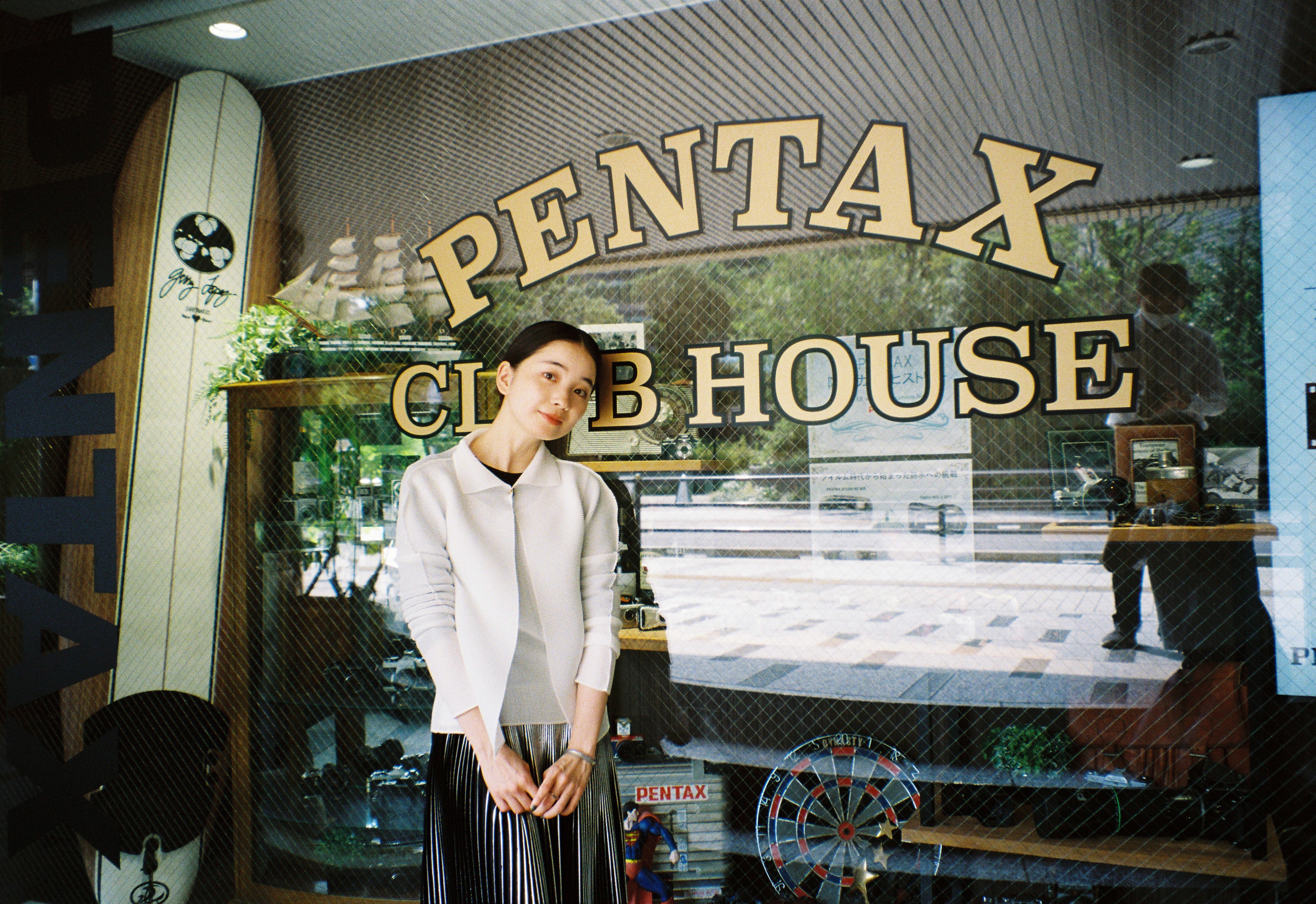
Short series PENTAX Film Project Club House Diary vol.6 Guest: Momoko Fukuchi
OCT. 19 2023, 12:00PM
Photographs and text / Melanie Tada
BARFOUT!: When did you start using film cameras?
Fukuchi: I always liked taking pictures, but when I was 18 years old, I had the opportunity to go to Turkey for work, and that was the first time I used a film camera that I borrowed from my sister. I am stilling “borrowing” that camera and using it to this very day (laughs). There are some challenges to continuing to use old cameras, such as losing certain parts or having to reinforce the camera body with a similar silver tape if it peels off, but there is a sense of newness in old cameras, and I think I would feel a little empty if everything were new. I don’t think it’s good or bad whether you’re using an old or new camera, but when I use a film camera, it seems like it can create a special moment between the things I capture on film and myself.
Iikawa: When do you usually use a camera?
Fukuchi: I always bring my camera with me when I travel. When I was in Turkey for work, I focused on taking wide shots, but when I encountered an old man carrying a big plate full of simit on his head, which is a popular type of bread in Turkey, I couldn’t resist snapping the shutter. (Shows the photo) This is the one. I think this was the first photo that I ever took with a film camera in my life.
Iikawa: He’s got a great expression on his face. It really conveys the atmosphere, and the colors are captured so vividly.
Tabei: The composition is also interesting because you were conscious of taking a wide shot.
Fukuchi: Even though I didn’t speak the language, I asked him if I could take his picture and he gave me permission, and it’s a photo that I still like to this day. I was surprised at myself for actively talking to someone I had never met before, and I feel that the communication was born from the fact that I happened to be holding a camera at the time. In Turkey, we went to Antalya, which is located along the coast of the Mediterranean Sea. I went fishing, and the only plan that was set in stone was the destination I would eventually arrive at. I opened up a map and just walked down the road of my choice, without using any vehicles. Although the trip was for work, I was able to experience firsthand the warmth of the people I met in Turkey, and when I returned to Japan and developed the photos, I was filled with joy, as if I had a souvenir to give to myself.
Suzuki: When you develop photos, there is a sense that all of your thoughts and feelings at that time come pouring out at once, isn’t there? I used to be a backpacker, and I also love Turkey, as I’ve been there about nine times in total. Even if I just said “hello” ,the locals are thrilled to hear I speaking Turkish, and they will welcome me with open arms, and everyone was so kind and smiled so happily when I pointed the camera at them. People there let me stay in their homes even though we had never met before, and we spent such close time together that I cried a little with loneliness when we parted ways (laughs). But still, you would be a great backpacker!
Fukuchi: I’m very interested in that (laughs). At the time, I also borrowed a digital camera from my mother, but I took way more photos with my film camera during that trip. I always have a desire to take pictures with a camera that suits the city and the things I am photographing. The vibrant colors of the city gave me so much energy just walking around that every time I look at the photos, I find myself reminiscing about how much I would love to go back.
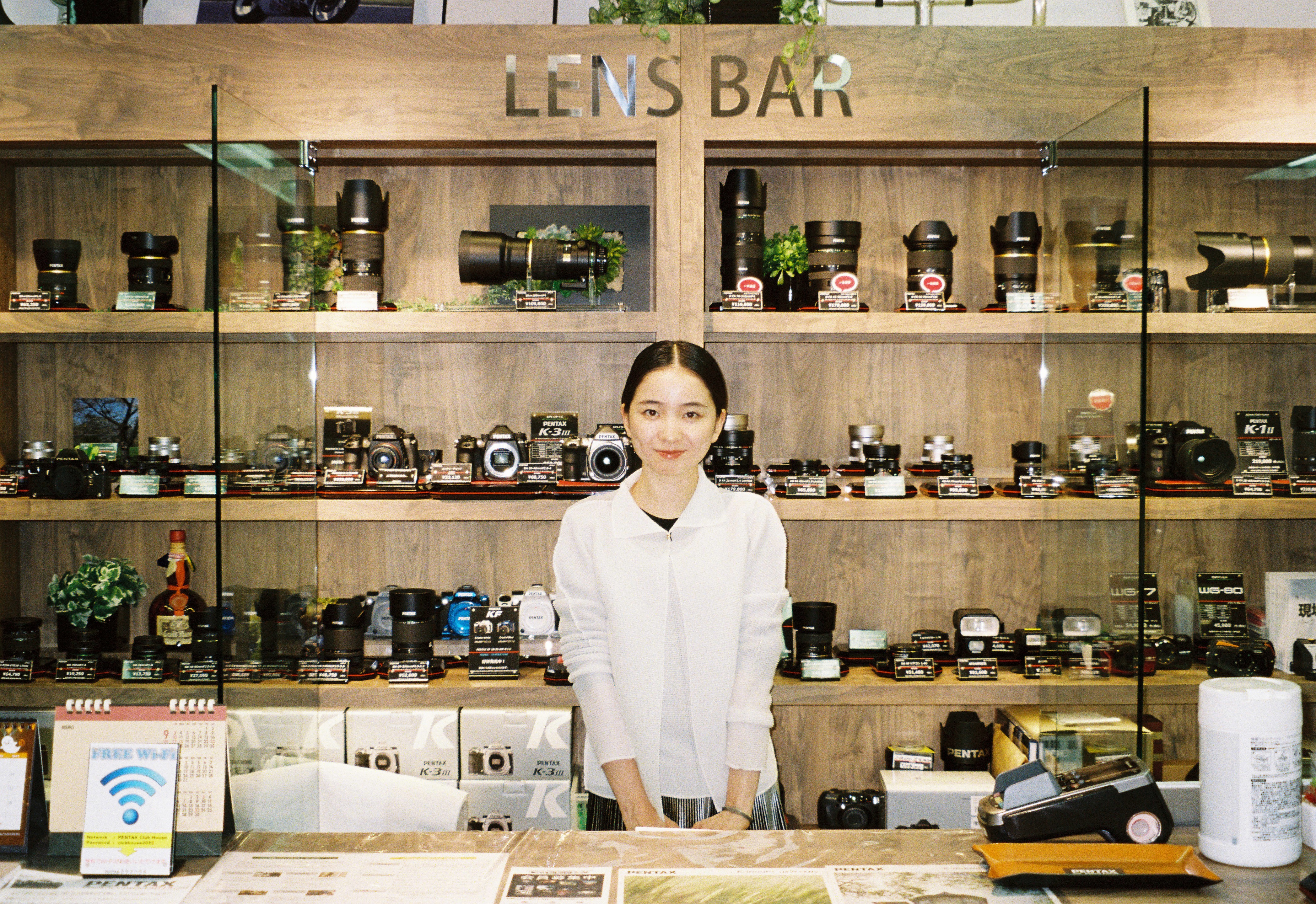
Tabei: After you shoot with film, do you convert it to data? Or do you print them out?
Fukuchi: I usually print them out. Perhaps because my mother used to take pictures and keep them in albums when I was little. I also liked the process of developing the pictures and stuffing them into albums. I might be like my mother in that respect, but as I grew older and started taking photographs, I began to feel more inclined to preserve them in a physical form.
Iikawa: If you were to get a new film camera, what kind of camera would you want? For example, would you want a camera that would let you match colors according to your outfit or mood, or would you want a more “camera-like” camera?
Fukuchi: Well, the camera that I’m using now (Fujifilm Klasse W) is functional and easy to use, but I think it’s a cool camera that incorporates something new into something old. I love that it shows respect to the good qualities of both! Things that are inconvenient or troublesome are only stressful because you’ve experienced a newer camera, and when you imagine what it was like when you didn’t know about highly functional cameras, you realize that it’s not that big of a deal. By selecting and using a film camera that fits the atmosphere of where you’re at, even though it would be fine to use a digital camera, it creates a moment to enjoy the hassle of using film. I personally hope that film cameras will be preserved and not lost in the future. I’m not sure if I answered your question but… I would like to find a camera that I can actually enjoy while using it, whether it is the sense of comfort when I hold it in my hand, the pleasant sound of the shutter, or the texture of the camera when I hold it in my hand. I’d like a camera in which you can naturally discover things you like about it, rather than searching specifically for particular aspects that you like about it.
Tabei: It’s very nice to hear you say that. We live in a world of convenience, but by daring to attempt to use something from a previous generation, we can gain a sense of accomplishment or a different feeling from what we had before. That’s one of the great things about film cameras.
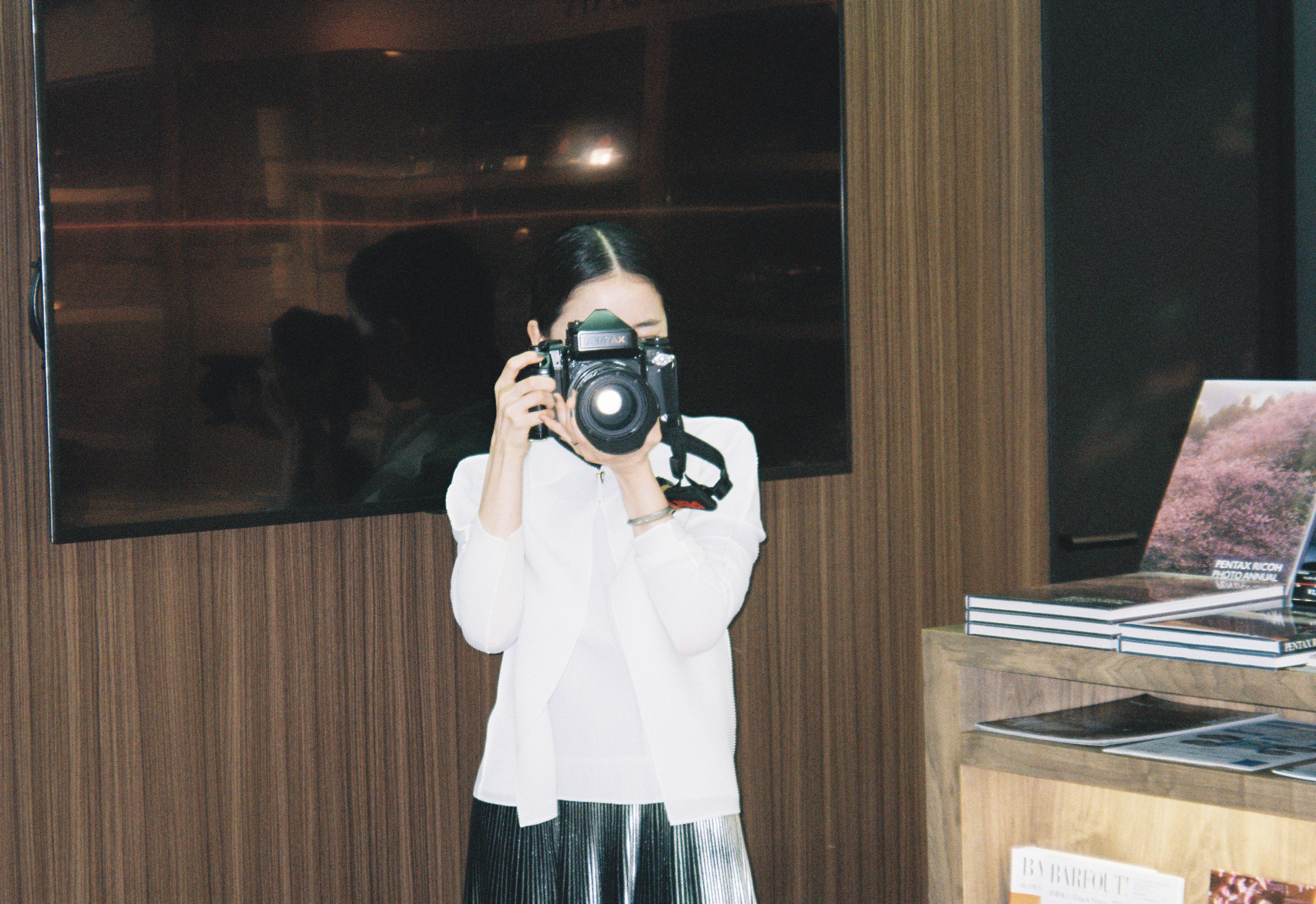
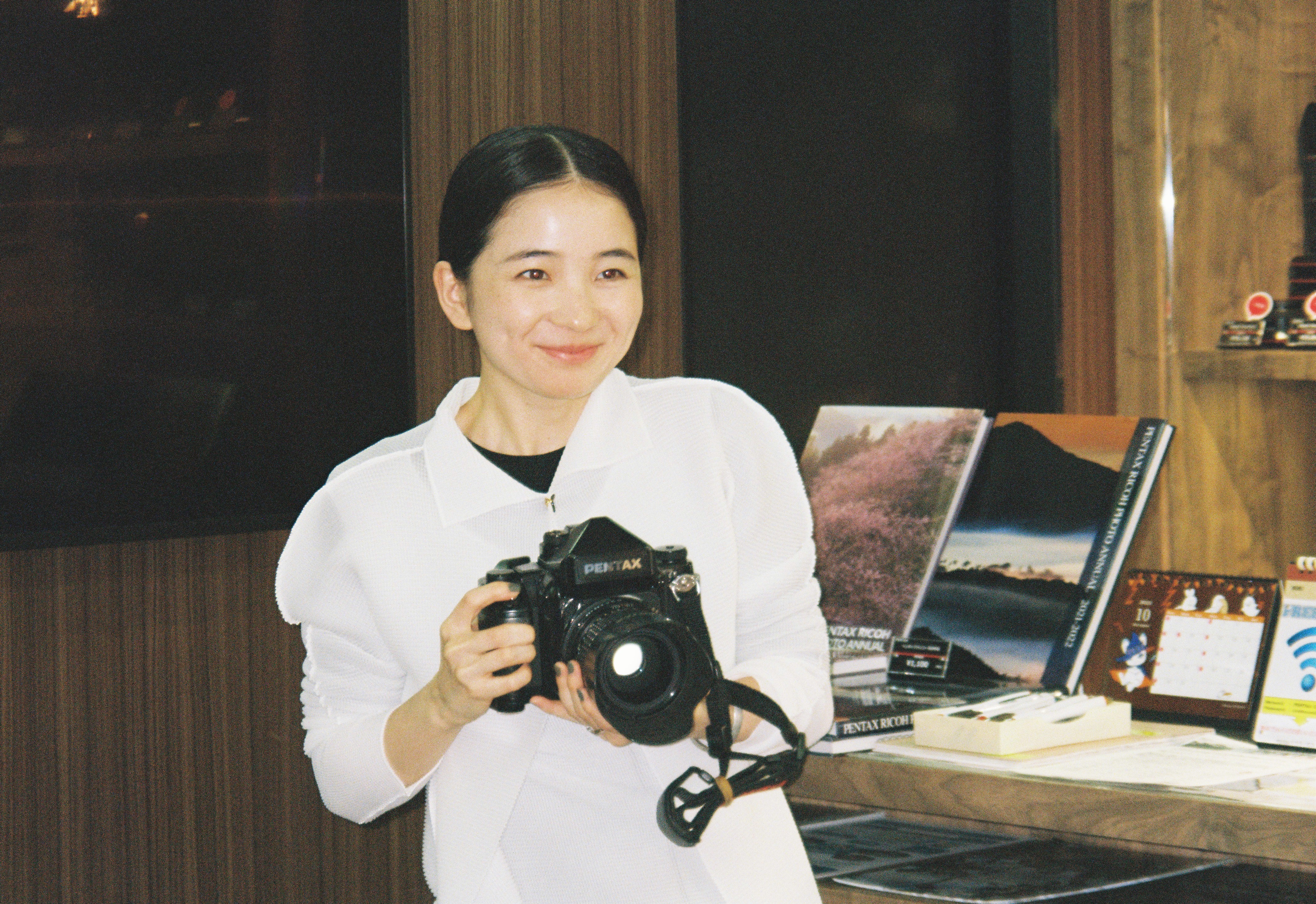
Fukuchi: Today, I had the opportunity to actually try out a PENTAX and I thought the sound of the manual winding was also wonderful. My camera is automatic, but this one had a feel that was unique to manual winding cameras.
Suzuki: We’ve already decided that our new camera will be equipped with manual winding as well. But beyond that, things haven’t been so straightforward (laughs). If we only pursue performance, we will also end up with a camera that will be difficult to handle or is in a price range that is too expensive. There are many ways of thinking about film cameras, but our goal is to create a camera that is exciting to use, that makes you happy to hold in your hand and enjoy just touching it even when you are not shooting.
Iikawa: Rather than just simple performance, it would be great if we could make a camera that would make people want to leave space in their suitcases when packing so they can bring it along with them on a trip.
Suzuki: We’re asking many younger people to think again about the joy of using a film camera, including the hassle involved, and what we can add to make it more convenient, or what we can do to really make them feel like they’re using a film camera. We think that if we choose different features one at a time, we can create a fun camera that is perfect for today’s market.
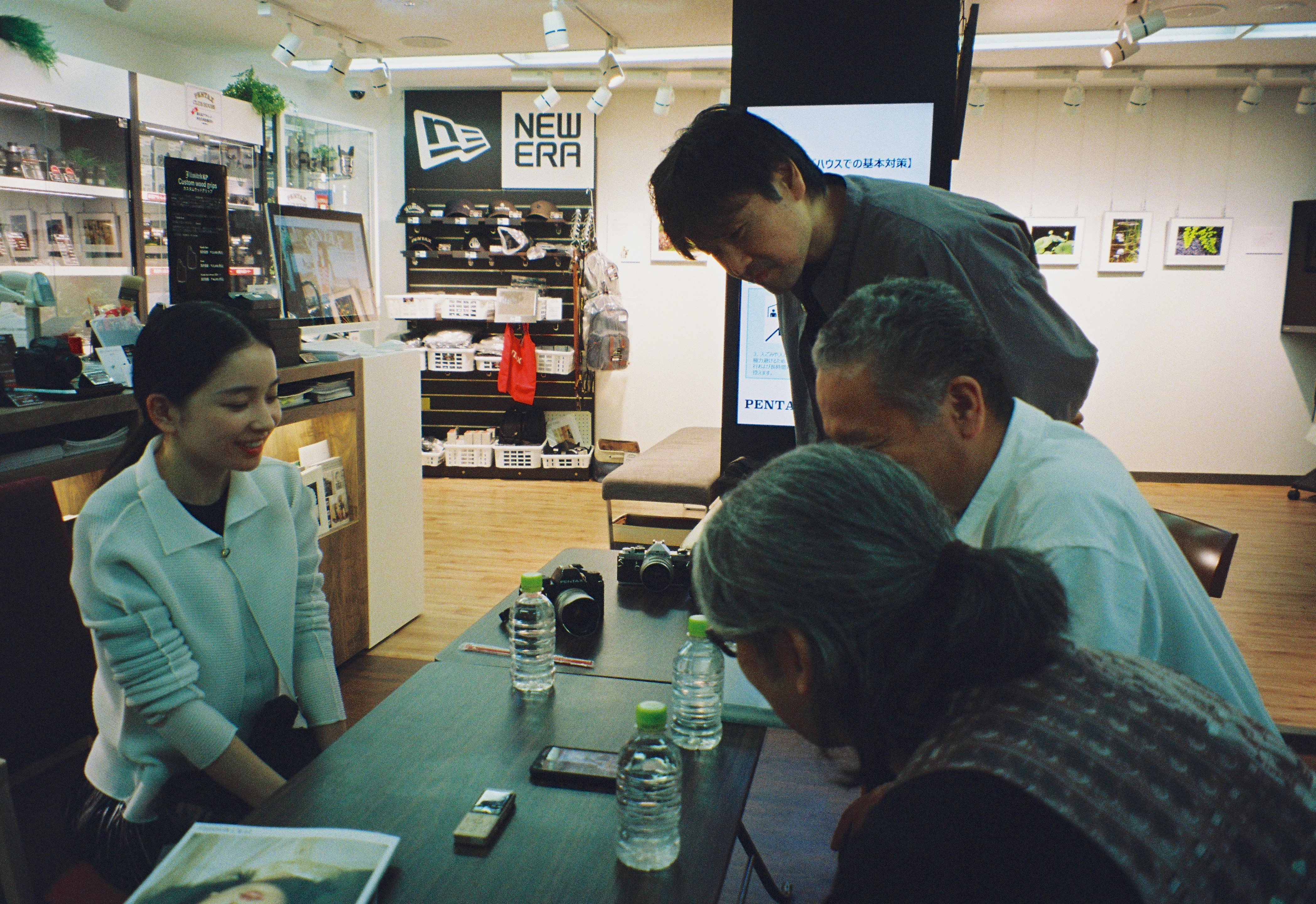
Fukuchi: Cameras are very expensive and delicate, particularly film cameras, and because they are irreplaceable, there is always a sense of pressure to take good care of them. I think that pressure is a good kind of pressure, but I feel that it stands in contrast to the feeling of wanting to take it with you wherever you go without worrying about it. I think that is why durable cameras are in high demand. It’s the same with clothes. For example, my mother would not hesitate to lend me her coat, which she has treasured ever since she bought it when she was young, but she lets me use it whenever I want without saying, “Please don’t wear it to a place like that,” so it enables me to experience the pressure of taking good care of it. There is a joy in using quality things and sharing their value, and being able to wear them naturally wherever I feel like wearing them… Such a camera would be very ideal. I would love to have a sturdy and durable camera that I can use as a travel companion for my adventures, so I look forward to what you guys end up making (laughs).
PHOTOGRAPHS BY MOMOKO FUKUCHI
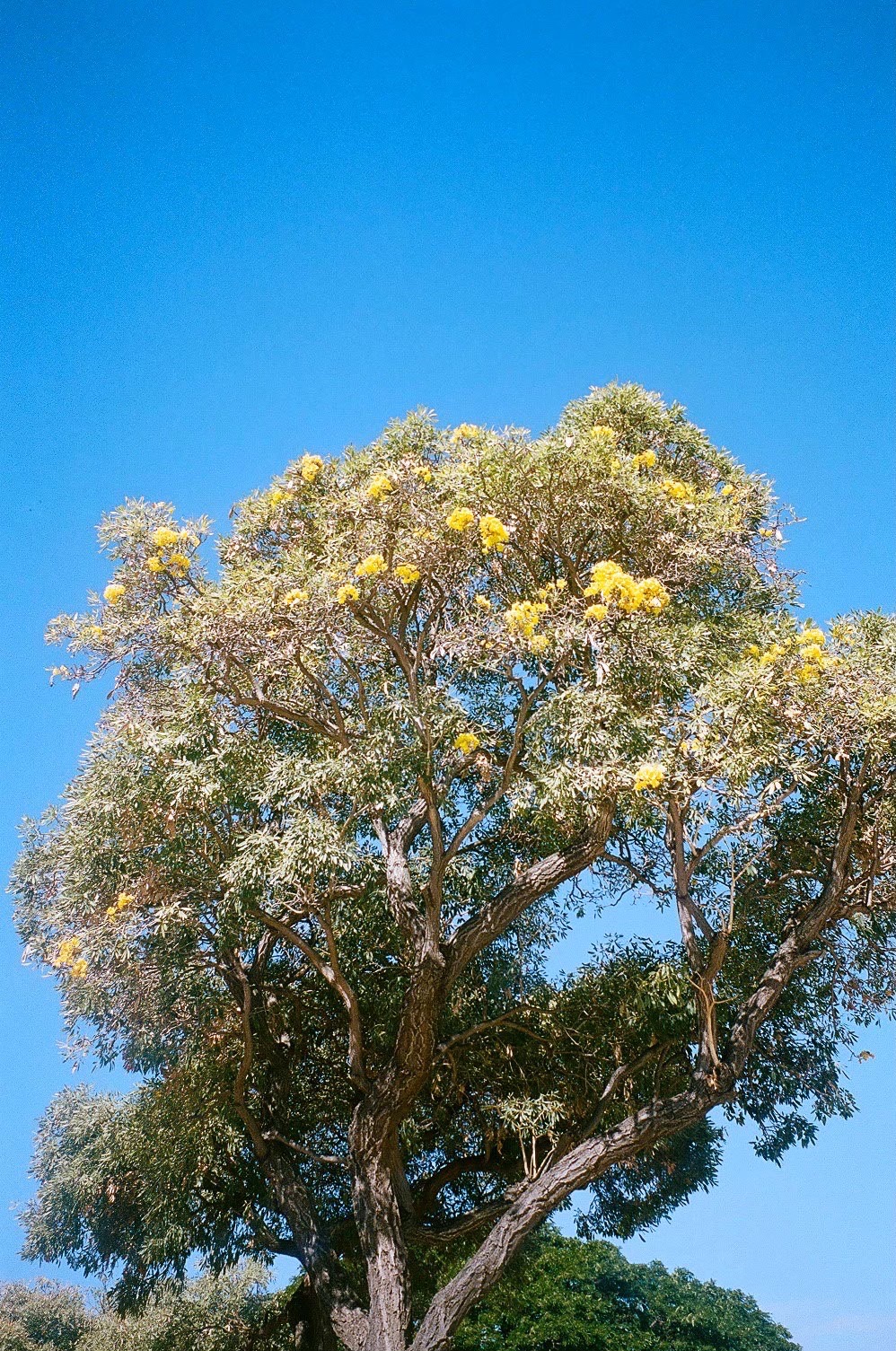
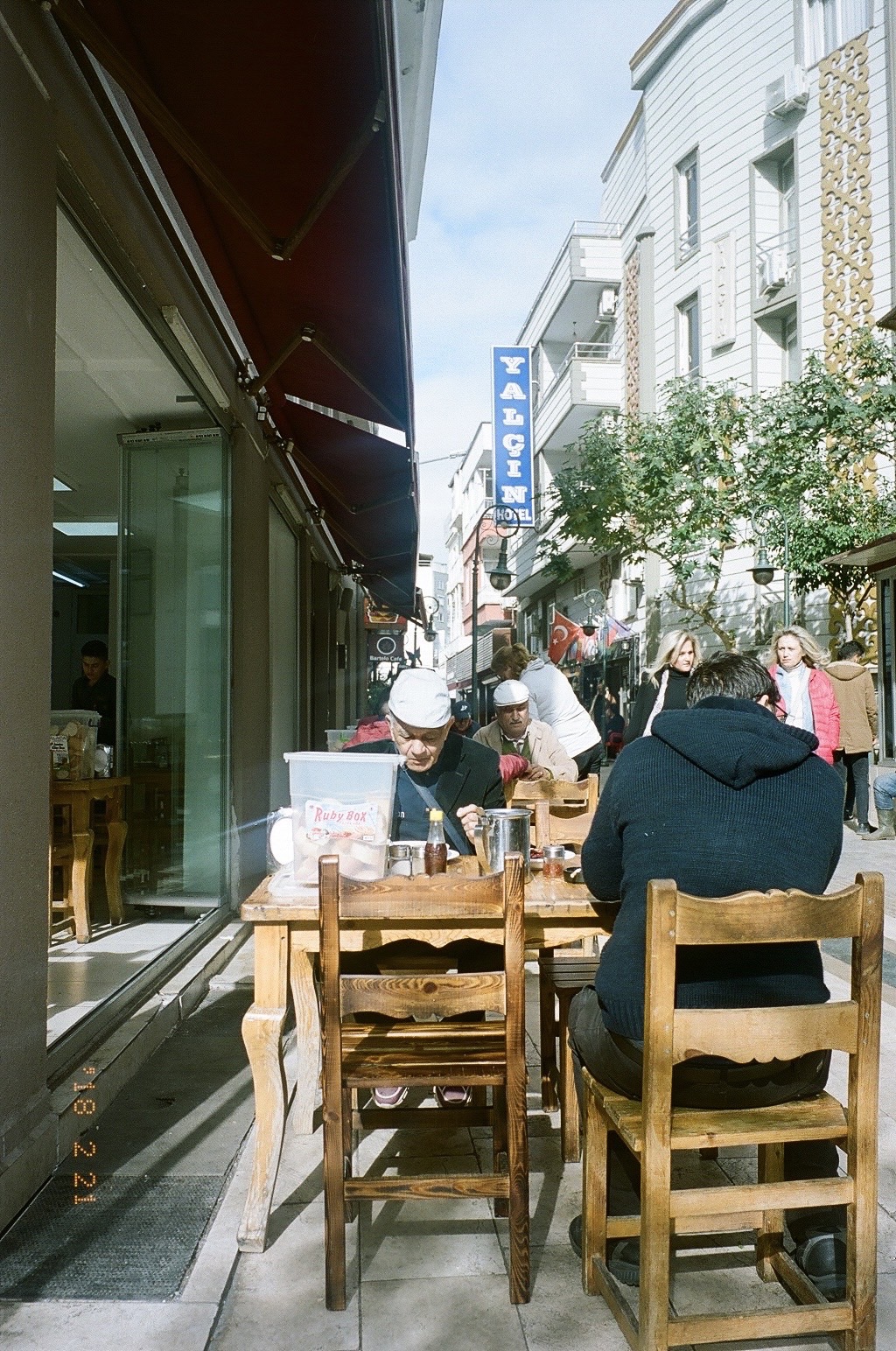
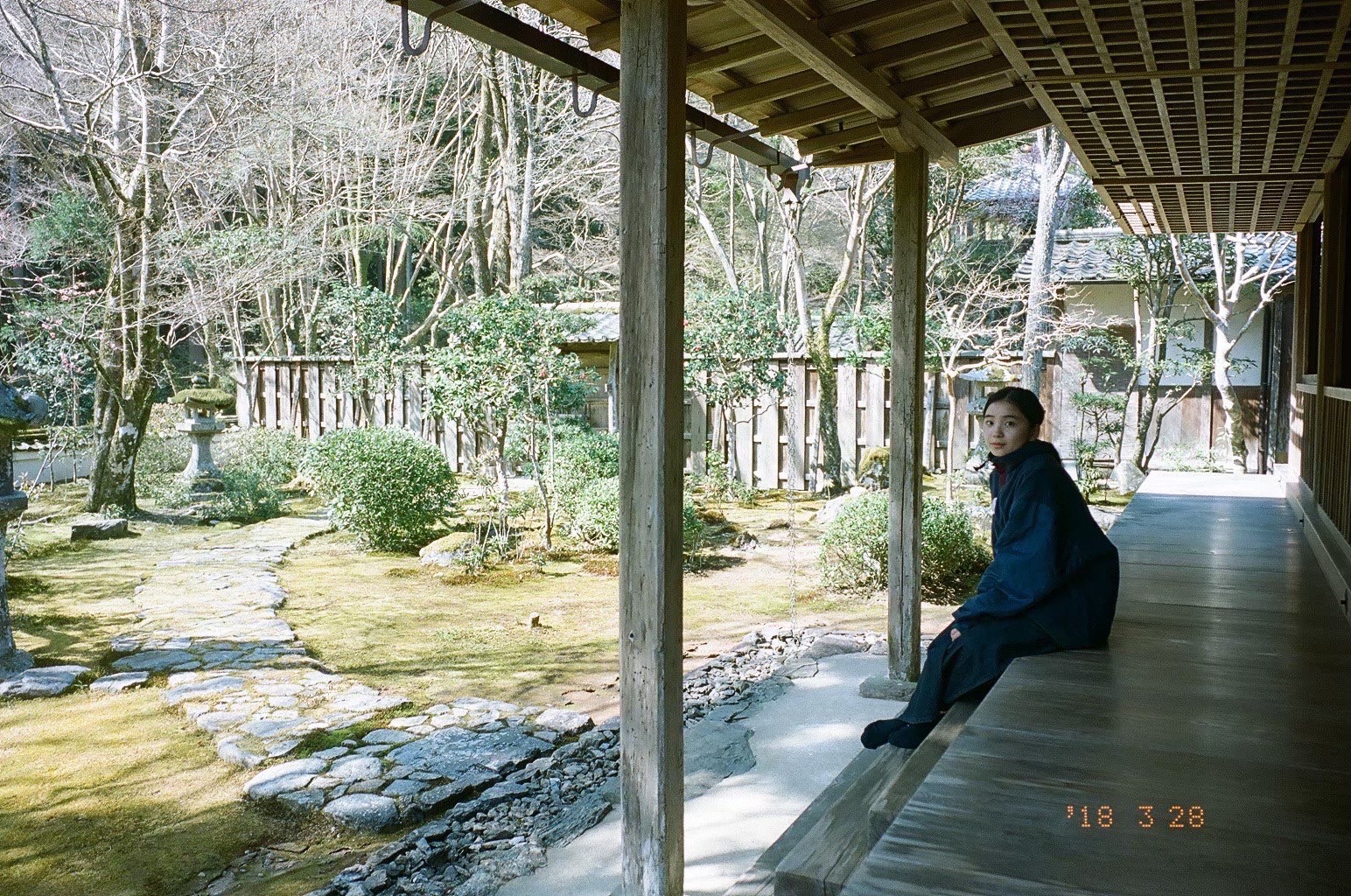
(1) A photo from a trip some time ago. I thought the tall trees were nice, and beyond that, there was a breezy lightness that made me feel very comfortable, like I could stay here without any purpose.
(2) A record of my first trip to Turkey with a film camera. I took these photos of them eating lunch from a distance. What they are eating is a dish of stewed beans on a one-plate platter. On the desk is a large box with bread that you were allowed to get unlimited refills… There were also plenty of other raw vegetables. I was surprised that they were all free!
(3) When I was staying in Kyoto for a while for the filming of the movie “Organ” (Japanese title: “Ano Hi no Organ”), I went to Kosan-ji Temple. This is a photo taken by an old man I met there.
INFORMATION ON PENTAX
smc PENTAX-FA 50mm F1.4 Classic
The standard lenses are now on sale, which offer unique and enjoyable images as if they were taken with old lenses. By devising the position and size of the “iridescent flare,” which changes depending on the location of the light source and the subject, you can enjoy unique and one-of-a-kind renditions that cannot be experienced with lenses of the latest design.
www.ricoh-imaging.co.jp/english/products/lens/k/standard/smcpentax-fa50-classic/
【WEB SITE】
ricoh-imaging.co.jp
【Instagram】
@pentax.jp
【X】
@ricohimaging_jp
INFORMATION OF MOMOKO FUKUCHI
She will appear as the main character, Chihiro, in the stage production of “Spirited Away” at the Imperial Theatre starting in March 2024.
【WEB SITE】
@lespros_momo
【Instagram】
@lespros_momo
【X(Staff Account)】
@momoko_fukuchi




